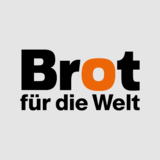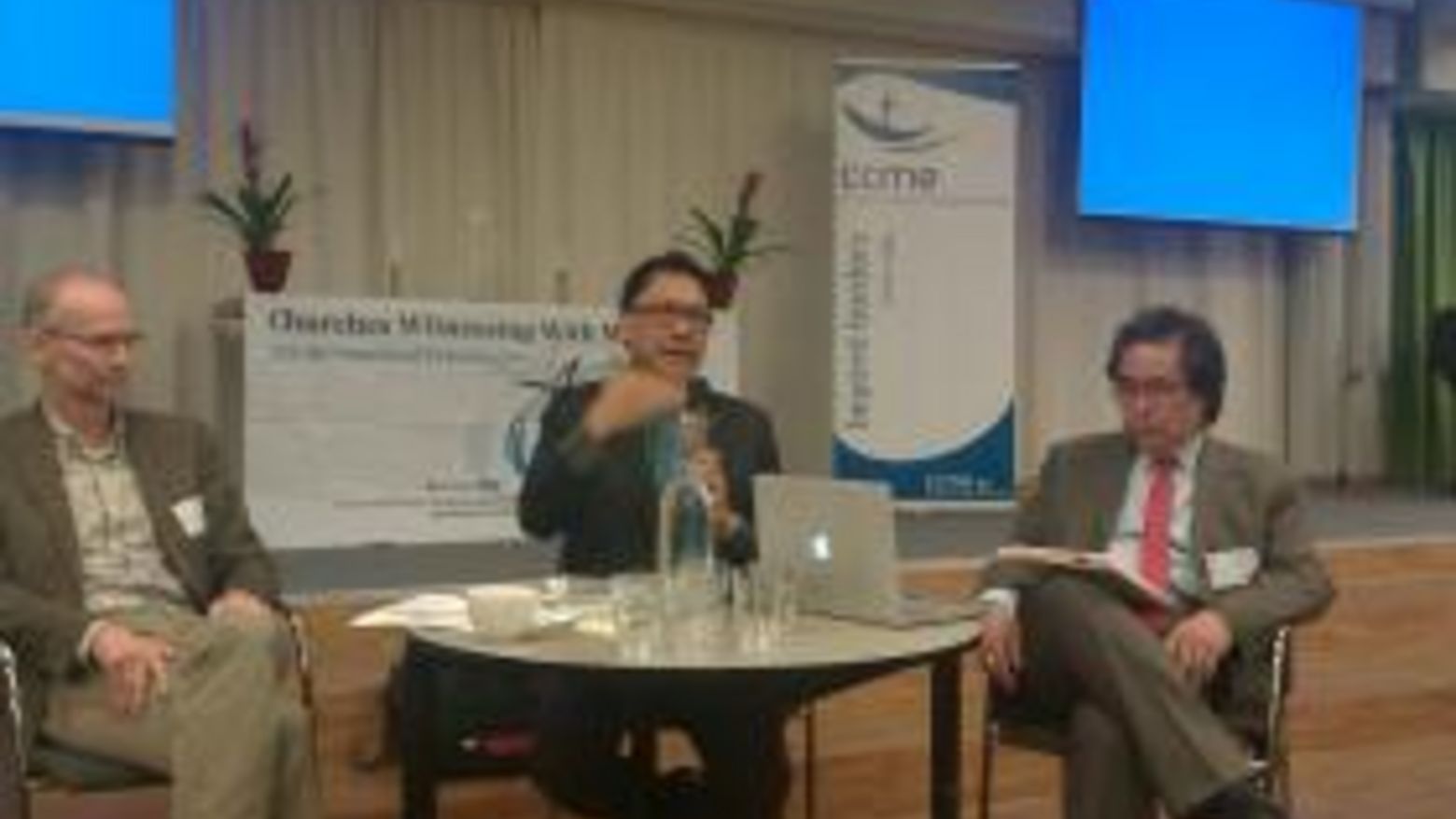The Fifth International Consultation of Churches Witnessing With Migrants (CWWM) convened on 11 May 2014, at the Immanuel Church in Stockholm, on the eve of the 7th Meeting of the Global Forum on Migration and Development (GFMD).
The following text is taken out of the statement that was published on May 11th 2014.
We were 40 participants from 24 countries representing the three communities that constitute who we are as CWWM: migrants, migrants’ organizations, and church and ecumenical institutions. We met seven months after the High Level Summit on Migration and Development in October 2013 in New York City where we issued the 17-point Advocacy Paper. In Stockholm, we reviewed the meaning of migration and resolved to elaborate, deepen and broaden our understanding and practice of advocacy and development justice. We discussed more fully the theological and ethical resources that add to the normative foundations of our advocacy.
Building on the momentum of the CWWM 4 in New York, and affirming the 17-point analysis conceptualized in the CWWM Advocacy Paper, the participants of CWWM 5 re-affirm the right to migrate and reiterate the vision of a world in which people are no longer forced to migrate. We recognize our inherent collective call to advocacy with migrant communities, in terms of developing new narratives to the paradigms of migration and development, raising awareness of these new narratives to our grassroots constituencies, building platforms for the rights of migrants, and
speaking truth to power with our own collective power. From the grassroots, national, regional, and multinational levels, we must continue to press for a fundamentally new paradigm that upholds and protects migrants and their human rights, at the same time we insist that existing structures be inclusive and accountable.
Development Justice, Migration, and Human Rights
In Stockholm, we asserted that development justice is the general framework of CWWM for the work of advocacy. Its pillars, namely, redistributive justice, economic justice, social justice, environmental justice and accountability to the people, are co-constitutive and indivisible. These pillars are simultaneously global and local in character.
Even as we acknowledge that forced migration, human rights violations, and development injustice are inextricably related, we reaffirm the indivisibility of migration (people on the move), human rights, and development justice.
Forms of Advocacy
Even as it is not possible to understand the realities of forced migration without understanding the intersectionalities of racialized, gendered, sexualized, and securitized migration, it is also not possible to articulate the fullness of advocacy without insisting on the need for advocacy to be multistranded, inclusive, and strategic, while at the same time being attentive to the dangers of reproducing practices that sustain globalizing neoliberal capitalism.
In this context, we commend to our constituencies the following:
- the development of a protocol of how we as migrants, migrants organizations, and, church and ecumenical institutions, respond to urgent situations of life and death facing migrant communities today;
- the facilitation of a collective shadow report from CWWM affiliates to the United Nations Human Rights Council’s Universal Periodic Review and to the Committee on Migrant Workers monitoring implementation of the International Convention on the Protection of the Rights of All Migrant Workers and Members of Their Families;
- the continuation of our collective analysis of the root causes of forced migration, and the churches’ role in seeking development justice; and the formation of concrete alternatives to the prevailing conceptualization of development currently discussed in the post-2015 Sustainable Development Goals process;
- the articulation and advancement of an alternative narrative informed by faith-based perspectives based on the framework of development justice that can be deployed to inform and contribute to the discourses and the processes of other on-going initiatives, e.g. Campaign for Peoples’ Goals on Sustainable Development;
- the encouragement of a self-critical, reflexive sensitivity and commitment to systematic research and reflection on advocacy work including the re-thinking by faith-based communities of their strategies and processes especially in engaging with a broader range of stakeholders (e.g. governments, international platforms like the GFMD, and UN institutions); and bringing to their attention, the analysis, advocacy positions, and related documents of civil society organizations.
Justice, Advocacy, Hospitality
We say once more that forced migration, human rights violations, and development injustice are interrelated, and we declare yet again that migration (people on the move), human rights, and development justice are indivisible. In the theological language of the faith-based constituencies of CWWM, the former are nothing less than social or structural sin; the latter are undeniable expressions of the abundance of life, as gifts of God.
We assert further that forced migration is about dispersal, displacement, and dislocation. It is always accompanied by estrangement and the creation of endangered, criminalized, or anathemized “Strangers” or “Others” in our midst. In fact, forced migration radicalizes the experience of the Stranger or of Otherness in our time; and the existence of the Stranger in our midst raises for us the inescapable problems, prospects, and possibilities of transformation. Here, hospitality and advocacy embrace.
While in the Biblical tradition the existence of the Stranger is always accompanied by the ethical challenge of hospitality, we recognize that hospitality does not always aspire towards genuine compassion, or eventuate in acts of mercy or acts of justice. When hospitality is implicated in the rituals of power and privilege, the latter legitimizes structures of estrangement that require strangers who can be the recipients of acts of hospitality. Such exclusionary logics based on race, gender, sexuality, and security, for example, migrate on to the structures of hospitality without
being overcome or transformed. Thus, even if such hospitality directly addresses the condition of the Stranger brought about by forced migration, it can only be a necessary though insufficient response to overcoming forced migration. Hence, the need for acts of mercy and acts of justice within the framework of development justice.
The CWWM 5 has been challenged to look beyond and towards the kind of hospitality where both acts of mercy and acts of justice become co-constitutive. Such hospitality offers the opportunity to live well together in genuine partnership and solidarity.





